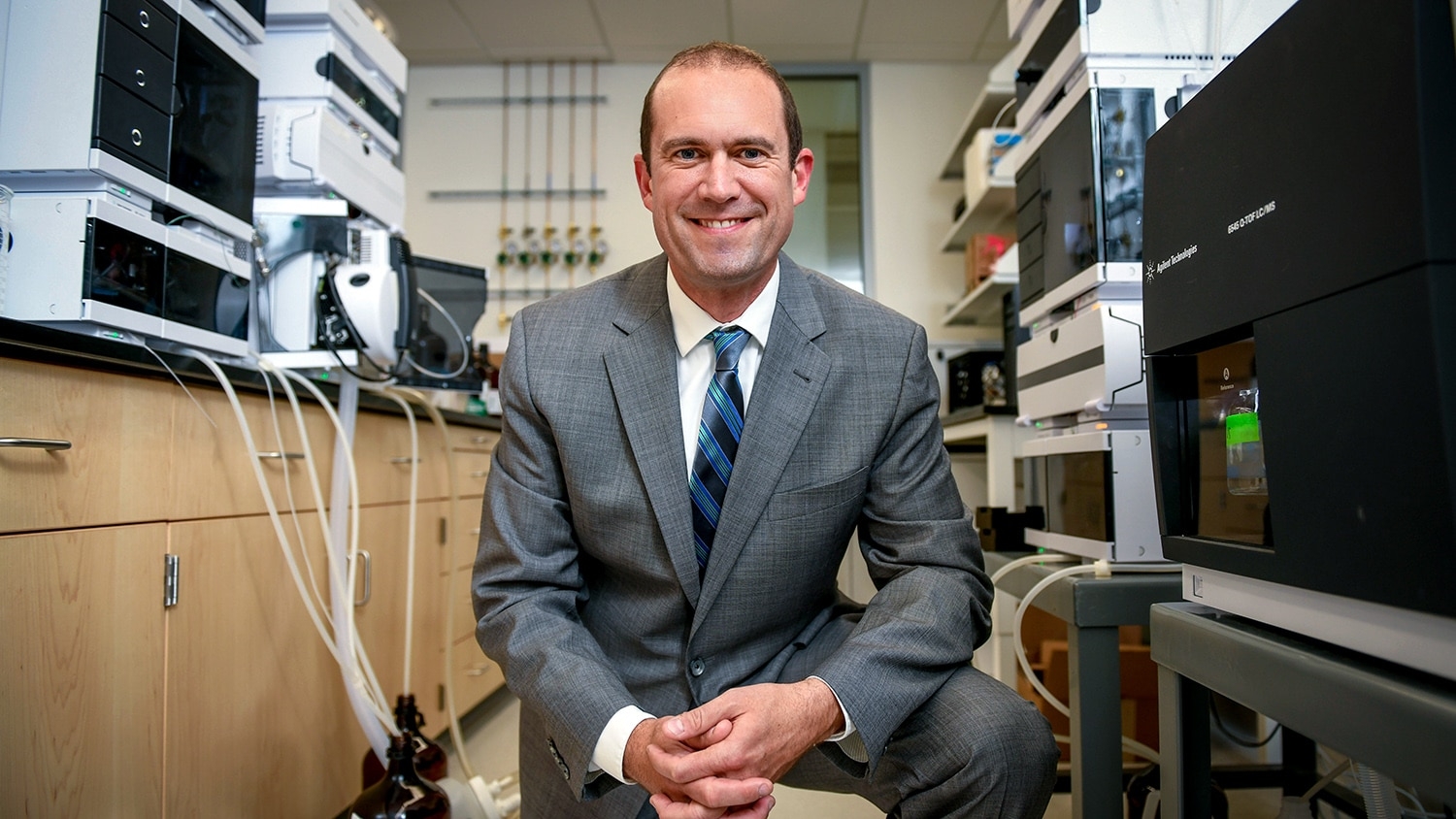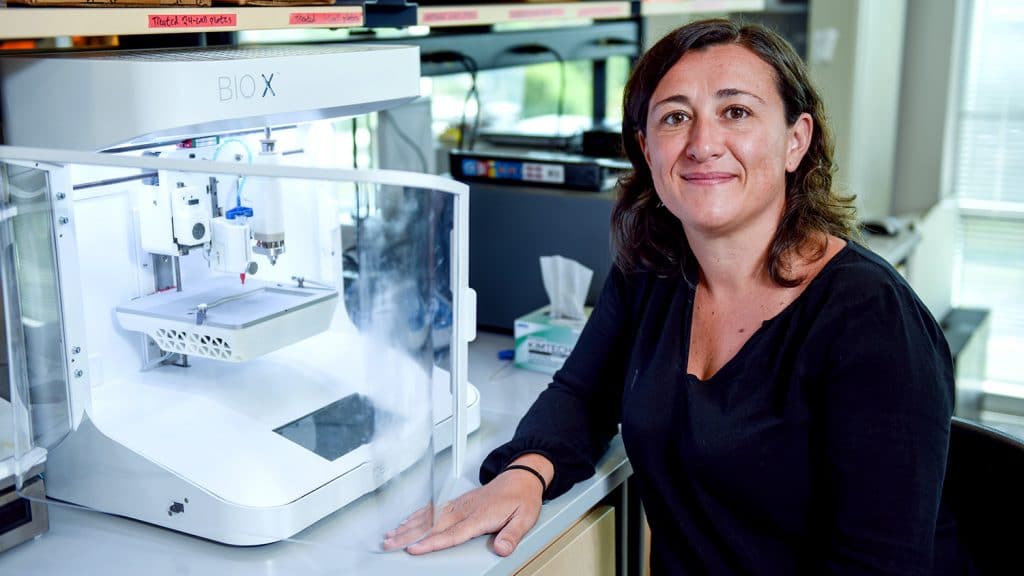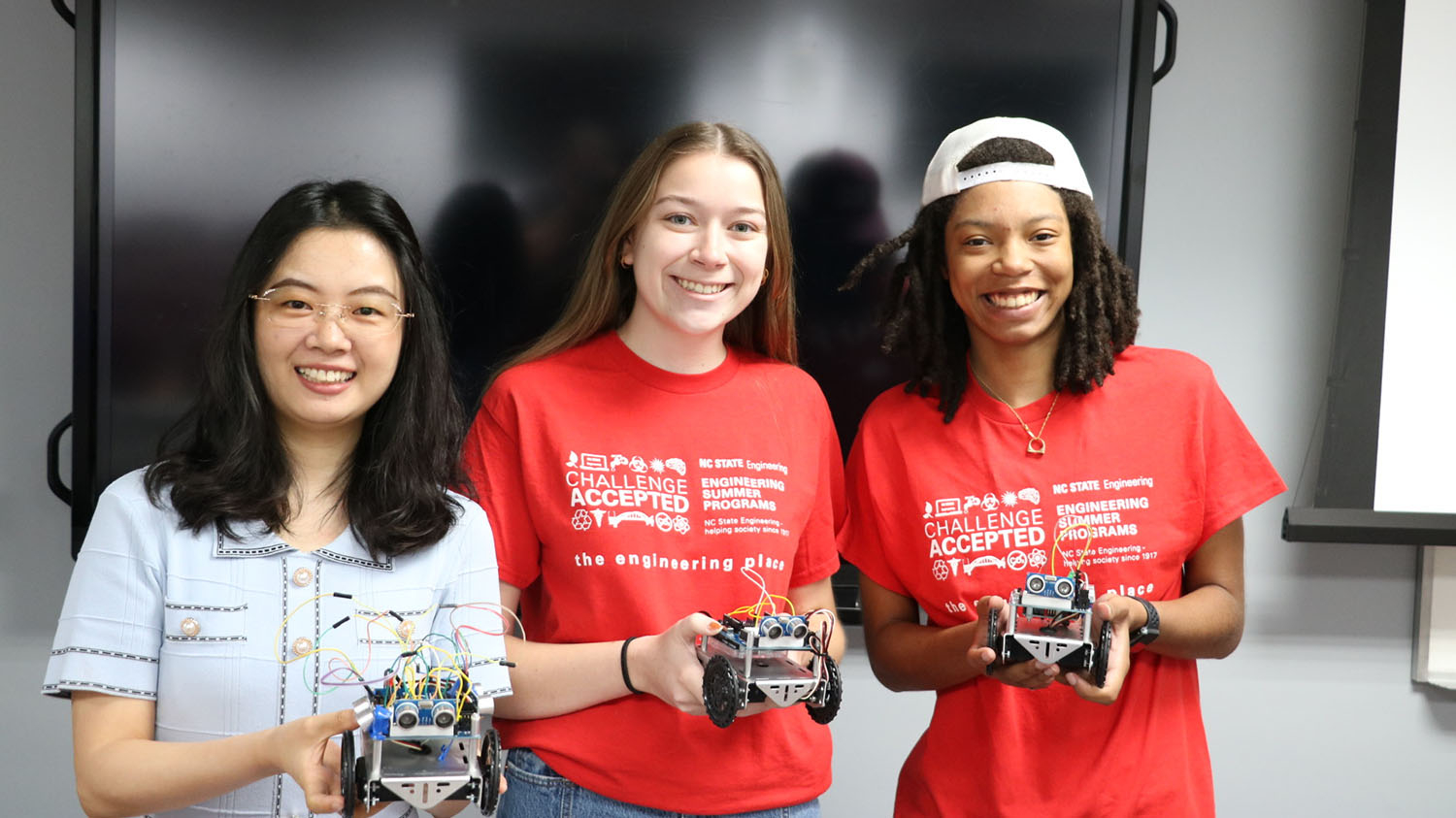New NSF Center Will Advance Phosphorus Sustainability

North Carolina State University will lead a national research effort to reduce both dependence on mined phosphates and the amount of phosphorus that leaches into soil and water, the National Science Foundation announced today. The research will focus on issues relevant to both food security and environmental quality.
The NSF Science and Technology Center – Science and Technologies for Phosphorus Sustainability (STEPS) – will be headquartered on NC State’s Centennial Campus. It is a joint effort between NC State and eight partner institutions. The center is funded by an initial five-year, $25 million grant that is renewable for an additional five years.
Phosphorus sustainability is an important and urgent societal problem. An essential chemical element, phosphorus plays a critical role in fertilizers used in food systems. But there are problems with supply – the industry relies on mined, non-renewable phosphates that could soon be depleted – as well as system inefficiencies and downstream effects on the environment.
“NC State is well positioned to produce effective solutions to societal challenges that require significant interdisciplinary work and innovation, and we’re pleased to be leading this crucial effort,” said NC State Chancellor Randy Woodson. “STEPS has ambitious goals that hold the potential to make a tremendous difference in phosphorus sustainability.”
Those ambitious goals include facilitating a 25% reduction in human dependence on mined phosphates and a 25% reduction in phosphorus losses to soils and water resources within 25 years, leading to enhanced resilience of food systems and reduced environmental damage.
Current food production systems rely heavily on phosphorus fertilizers, most of which originate from non-renewable phosphate deposits that are mined outside of the United States. Once in the food system, only 20% of the input phosphorus is ultimately incorporated into the human diet due to multiple system losses and inefficiencies. The “lost” phosphorus accumulates in soils and freshwater sources.
“Phosphorus-driven algal blooms impair safe drinking water and marine life, and the increasing flux of phosphorus to oceans also leads to an expansion of coastal dead zones,” said Ross Sozzani, professor of plant and microbial biology at NC State and a center co-deputy director. “Without intervention, the environmental, economic and sustainability issues involving phosphorus will escalate as the world’s human population grows by another 2 billion people by 2050.”
“STEPS develops the materials, technologies, and best management practices to recover, recycle, and reuse phosphorus,” said Jacob Jones, the center’s director and professor of materials science and engineering at NC State. “Recycling and reusing phosphorus means developing technologies and methods to capture “lost” phosphorus in soils and surface waters – as well as in animal and human waste – and then reusing that recycled phosphorus in fertilizers.”

“The establishment of STEPS is truly a watershed event,” said Jim Elser, Bierman Professor of Ecology at the University of Montana and a co-principal investigator on the project. “Globally, phosphorus loss from agriculture is now the main driver of water quality deterioration in lakes and rivers. Yet, extensive use of fertilizer phosphorus will still be essential for achieving food security in the coming decades. Squaring that circle is the “wicked problem” that STEPS will work to solve. This is really an exciting development that will move the center of gravity of the global phosphorus sustainability movement to the United States with the STEPS team leading the charge.”
STEPS will be an interdisciplinary center, integrating contributions across the physical, life, social and economic sciences.
The center’s headquarters will be housed in the new Plant Sciences Building, home of the university’s Plant Sciences Initiative, on NC State’s Centennial Campus. Researchers will draw from a wide variety of academic disciplines – ranging from agricultural engineering, biomolecular and chemical engineering, and materials science to chemistry, crop sciences, economics and sociology – to develop materials and technologies that can be deployed at the human scale while considering regional and global issues.
“The NC State University Plant Sciences Building, the future home of the N.C. Plant Sciences Initiative, is different by design,” said Richard Linton, dean of NC State’s College of Agriculture and Life Sciences. “It was built specifically to support interdisciplinary science teams from across different colleges, working on projects to tackle grand challenges. I couldn’t think of a better headquarters for STEPS. We look forward to advancing agricultural solutions together.”
STEPS will also incorporate a more than 50-year phosphorus field trial experiment at Tidewater Research Station in Plymouth, N.C. In this experiment, differing amounts of phosphorus have been applied to crops to study factors such as phosphorus-deficiency resilience as well as how phosphorus already remaining in the soil – so-called legacy phosphorus – can still contribute as a nutrient for plants.
STEPS will also leverage disciplinary contributions like team science and data science, while drawing on the expertise of industry partners to help guide the center’s work. These partners include stakeholders in agribusiness, municipal water and wastewater treatment, agriculture extension services and others.
“By bringing all perspectives together at the beginning and throughout the research process, we enhance the impact of the materials and technologies that we develop for adoption,” Sozzani said.
STEPS also has a strong inclusivity goal. STEPS will foster progress toward a goal of more than 50% participation by members of underrepresented minority groups, including more than 50% pre-baccalaureate participation to further broaden and develop the STEM pipeline. To ensure this goal is accomplished, STEPS will use proven theoretical approaches to ensure that all its participants, especially those from groups underrepresented in science and technology – including women, minorities and people with disabilities – have experiences in STEPS that lead to their retention and career progression.
“This strong commitment to inclusivity and diversity is a testament to beneficial partnerships with organizations and institutions that allow us to recruit talented participants while strengthening new research collaborations,” said Louis Martin-Vega, dean of the College of Engineering at NC State. “Diversity in thought, culture, experience and approach toward problem solving is truly required to address a societal issue that no single discipline or group can solve on its own.”
“The STEPS team recognizes the impact that diverse backgrounds bring toward solving key societal problems,” said Sherine O. Obare, dean of the Joint School of Nanoscience and Nanoengineering at North Carolina A&T State University and UNC Greensboro and a co-principal investigator on the project. “Delivering solutions that impact people from all backgrounds require that we address the problem using different perspectives that will benefit broader communities. Our goal is to broaden the participation and create an environment where we will leverage the brainpower of individuals from diverse groups to discover new knowledge in sustainability to find transformative solutions.”
STEPS will engage the public in various ways, offering a new series of continuing education courses and a continuing education certificate.
STEPS partner institutions include Arizona State University, Appalachian State University, the Joint School of Nanoscience and Engineering at North Carolina Agricultural and Technical State University and the University of North Carolina Greensboro, the University of Florida’s Institute of Food and Agricultural Sciences, Marquette University, RTI International, and the University of Illinois.
Paul Westerhoff, a professor of environmental engineering at Arizona State, will serve as a center co-deputy director.
NC State currently leads an active NSF Engineering Research Center called ASSIST, which develops self-powered health monitoring sensors and devices. The FREEDM Systems Center, a smart grid NSF ERC formed in 2008, is also headquartered at NC State.
-kulikowski-
This post was originally published in NC State News.


